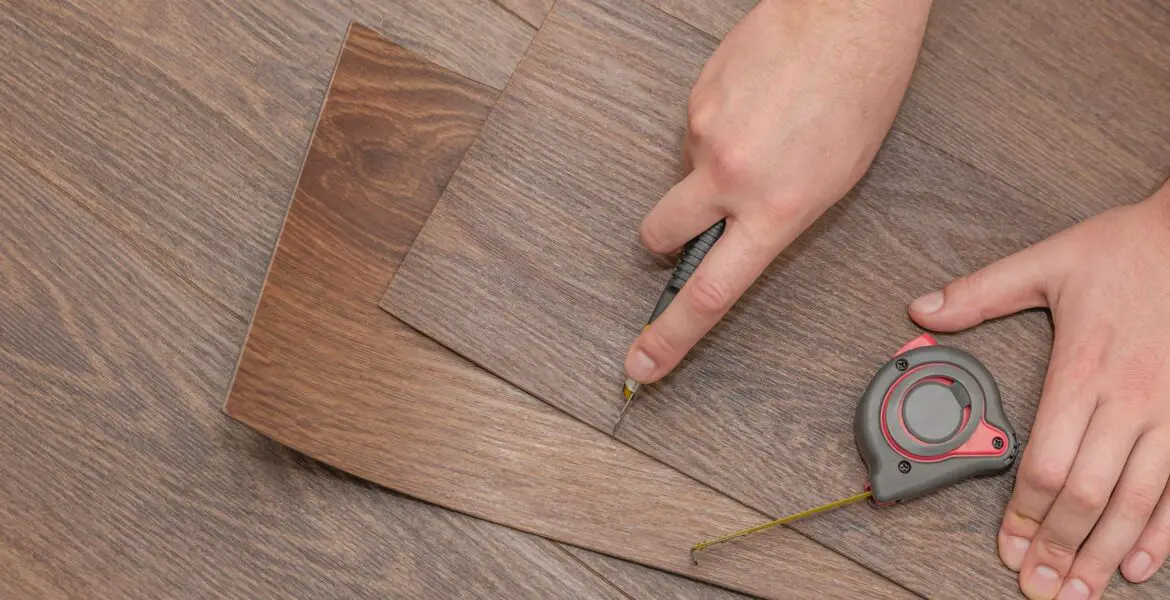Not sure if you should choose SPC vs vinyl flooring? Read on to discover the differences between both floor types so you can choose the best one for your home.
When my husband and I were renovating our apartment, I knew right away I wanted to change the flooring.
There was nothing wrong with the existing tile flooring. But, I wanted to add warmth to the space, and I knew having some type of wood flooring would help me to achieve my vision.
Unfortunately, hardwood was out of the question. Not only is hardwood expensive, but it’s not pet-friendly since it’s not water-resistant.
At that time, our interior designers suggested vinyl flooring. According to her, there are so many affordable options in the market that can mimic real wood (from texture to color!)
We were sold. Four years on, we still love it as much as we did when it was first installed.
Recently, there is another type of flooring that is very similar to vinyl known as stone plastic composite (SPC). However, it has key differences that could potentially make it the more superior option.
In this post, I will cover everything I know about SPC vs vinyl flooring:
- What is SPC?
- What is vinyl?
- Similarities between SPC and vinyl
- Differences between SPC and vinyl
- Which flooring should you pick for your home?
Read on to discover the differences between both floor types so you can choose the best one for your home!
Related to SPC vs Vinyl: Travertine vs Marble – What’s the difference and which is the better option for my home?
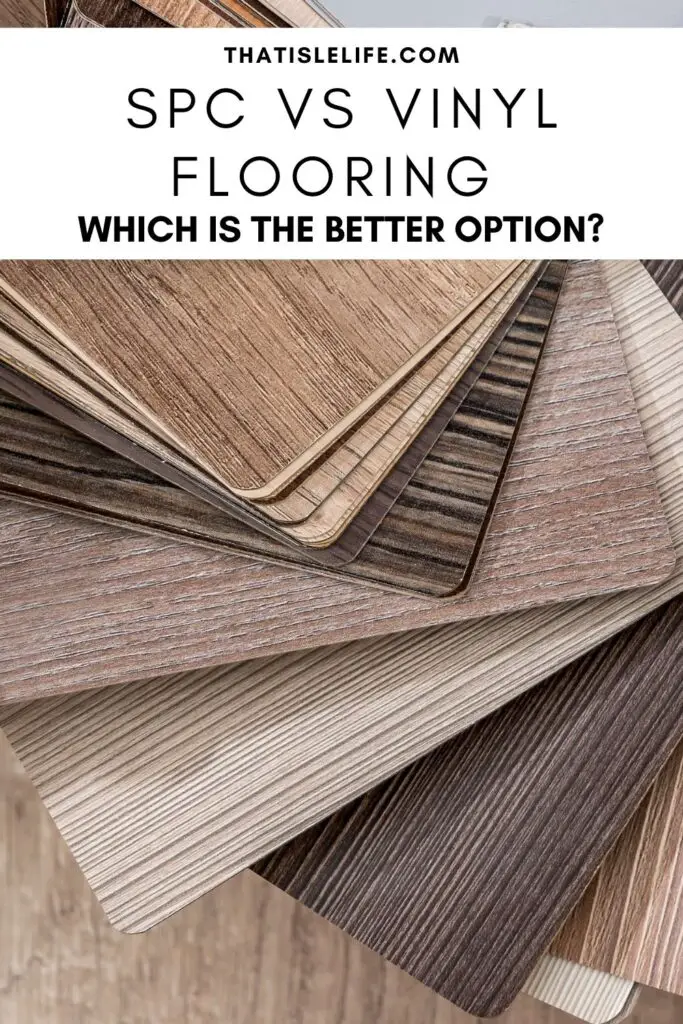
SPC vs Vinyl Flooring
What is SPC?
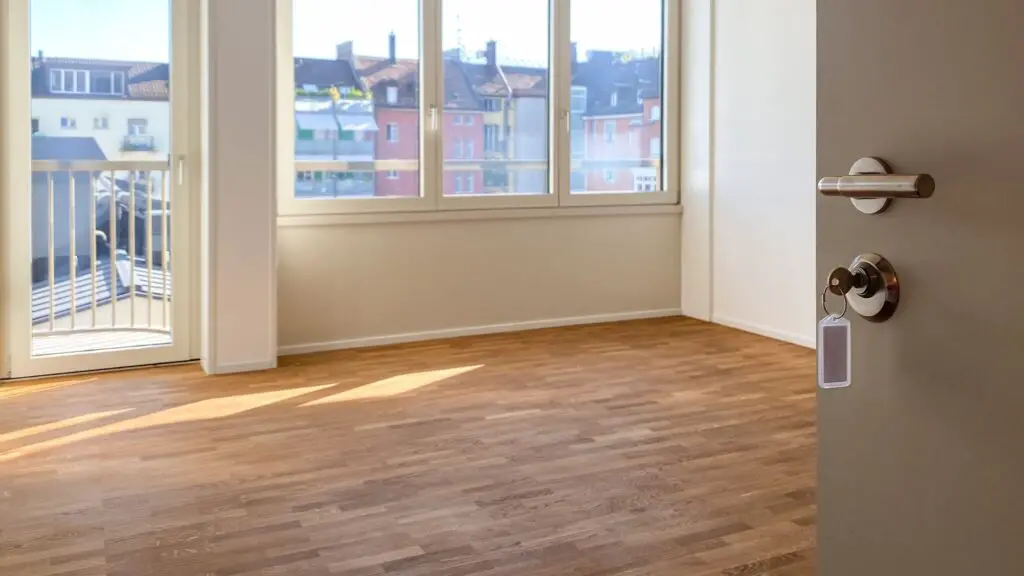
Before we start, let’s find out what SPC is and what it’s made of.
SPC stands for Stone Plastic Composite. The flooring has an extremely durable core made of powdered limestone (calcium carbonate), plasticizers, and polyvinyl chloride (PVC).
SPC has five layers:
- A UV coating that prevents fading and discoloration from the sun
- A wear layer that protects the print film from stains and scratches
- A decorative layer (There are many different colors and patterns, but this layer is what makes them look like wood!)
- The SPC core made of powdered limestone, plasticizers and PVC
- Finally, a base layer that is the foundation that supports the entire structure
What is vinyl?
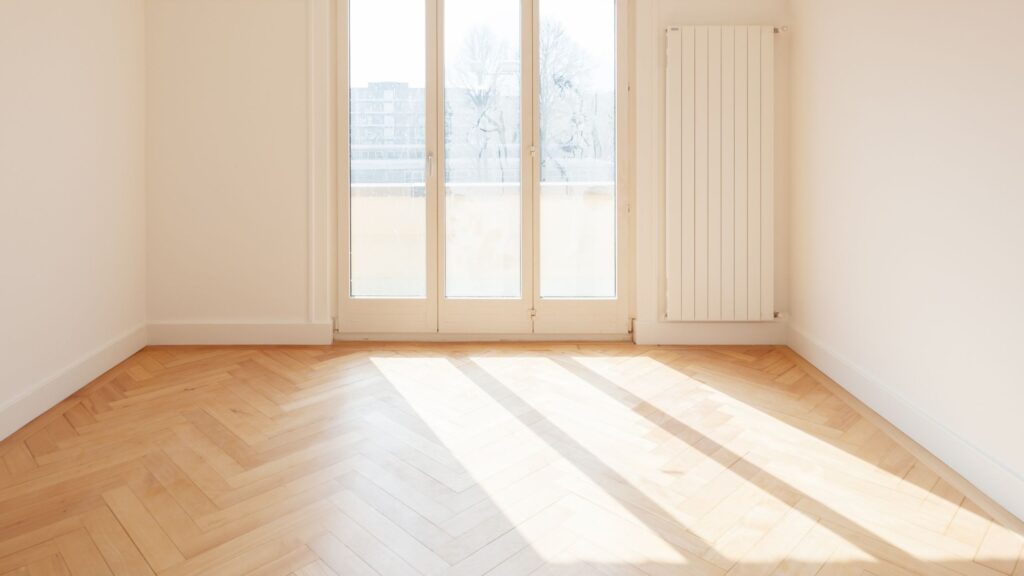
There are different types of vinyl flooring, but we are going to focus on wood plastic composite (WPC) in this post.
WPC is a type of luxury vinyl plank flooring. Its primary components are polyvinyl chloride (PVC) and a mix of wood flour. It is often designed to mimic the look and feel of hardwood planks/tiles.
Like SPC, vinyl/WPC is made of five layers:
- A UV coating that prevents fading and discoloration from the sun
- A wear layer that protects the print film from stains and scratches
- A decorative layer (There are many different colors and patterns, but this layer is what makes them look like wood!)
- The WPC core made of PVC and wood flour
- Finally, a base layer that is the foundation that supports the entire structure
Similarities between SPC and Vinyl
People often compare SPC and vinyl because they are so similar! Here’s a list of similarities:
- Waterproof
- Termite proof
- Anti slip
- Comes in a wide variety of designs
- Easy installation
- Easy to clean
- Can be installed anywhere
Differences between SPC vs Vinyl
Despite their similarities, there are a few key differences between SPC and vinyl. It’s important to know these differences because these can help you to decide which one to choose for your home.
Construction
The main difference between SPC and vinyl is the construction of each plank. A vinyl floor has a PVC core that makes it soft and flexible. On the other hand, SPC flooring has a core that is made of stone plastic composite, which makes it rigid and less springy.
Comfort
Because of its soft core, vinyl feels much more comfortable than SPC. SPC flooring generally feels harder, which makes it less comfortable for your joints and feet in the long run.
Insulation
Vinyl’s soft core also helps it to retain some warmth, which means better insulation. This is why vinyl is a great option for pets, as pets are likely to find vinyl more comfortable to walk and nap on. On the contrary, SPC tends to feel more rigid and cold.
Durability
SPC is more durable and resilient compared to vinyl. They are dent-resistant. Since vinyl is softer, it is susceptible to wear and tear. For example, heavy furniture can easily dent vinyl flooring.
Noise level
A soft surface usually means less sound will bounce off of it. Vinyl’s soft core makes it the quieter option, perfect for nurseries and home offices where peace is required!
Installation method
SPC uses a click-lock system that is DIY-friendly. There are a few different methods to install vinyl:
- Glue-down, which uses a strong adhesive to stick vinyl to the existing floor
- Loose lay, which uses adhesive only for planks or tiles surrounding the perimeter of the room
- Click-lock, a system that uses built-in tongue and groove system to secure the pieces together. You don’t need an adhesive for this method.
Click to learn how to install your own vinyl flooring!
Subfloor
Both vinyl and SPC can be installed over existing floors. Since vinyl is softer, it will show any imperfections like dents. However, SPC does not because the material is generally harder and sturdier.
Price
While price is usually dependent on the supplier and brand, SPC is slightly more affordable than vinyl.
Which flooring should you pick for your home?
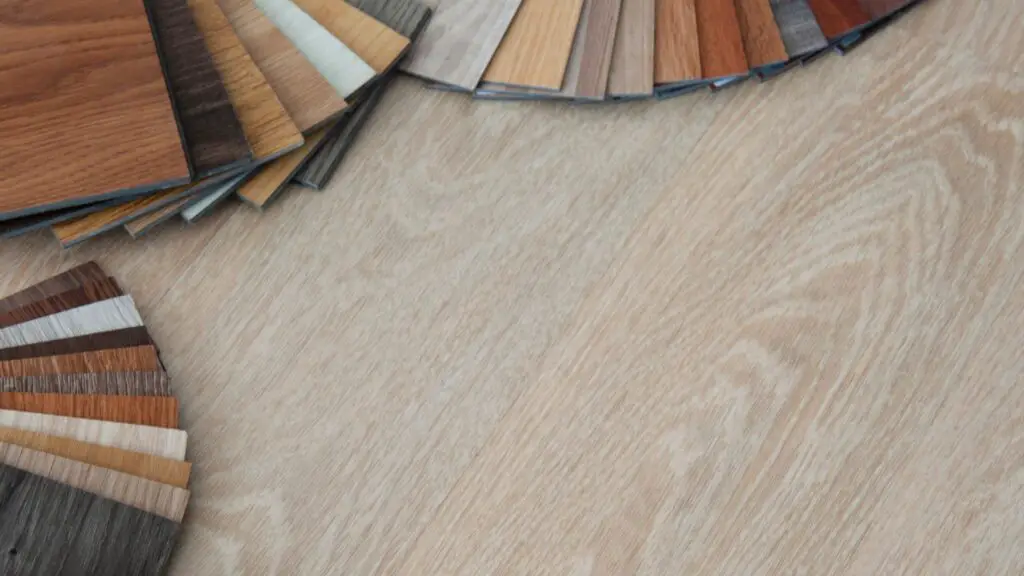
After evaluating both options, it’s clear that both SPC and vinyl have their own pros and cons. If you need some help choosing one for your home, consider these factors:
- Does your location of choice have high traffic? If yes, consider SPC for its durability.
- Do you have pets? If yes, vinyl is a more comfortable option for your furry friends.
- Are you using it for the gym? If yes, definitely go for SPC so that your heavy equipment will not damage the flooring.
- Does the area get heat during the cold season? If no, choose vinyl for better insulation.
Choosing the right flooring depends on what works for you and your family. Both materials are truly great because they are affordable, durable, and look just like real wood!
Although we love our vinyl floor, we have noticed some layers peeling. We may consider using SPC for our future projects like the laundry room and pantry, so we’ll keep you posted on our overall thoughts next time!
Until then, I hope this post has helped you to figure out which flooring is the most suitable for your space. All the best!

